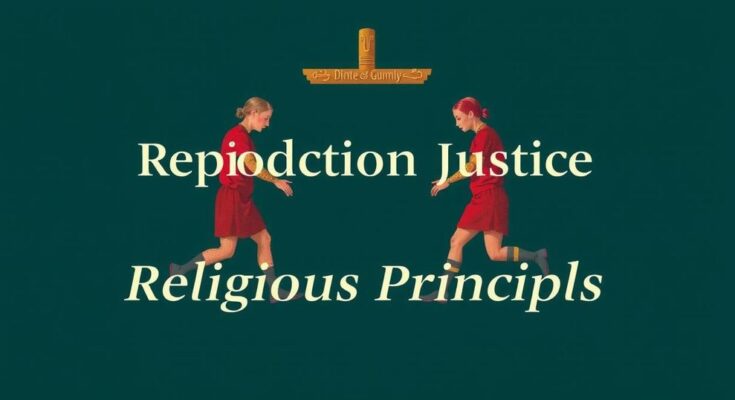The article reflects on the deepened commitment to reproductive justice inspired by a march in New York City following the Roe v. Wade decision. It discusses the crucial connections between reproductive rights and broader human rights issues, emphasizing the moral imperative for advocacy. Through biblical stories and real-life illustrations, it highlights the urgency of ensuring access to reproductive care and living out gospel values.
On the streets of New York City, as crowds surged in reaction to the Roe v. Wade decision, I felt my dedication to reproductive justice deepen. Amidst the throng of 60,000 protesters, the voices of the youth rose, voicing their anger towards religion and questioning clergy about their commitment to their bodies’ rights. This moment ignited a resolve to advocate for reproductive justice, which is crucial for all individuals going forward. Understanding reproductive justice is vital, as it encompasses essential human rights and the fight against various oppressions that threaten those rights. It aims for the holistic wellbeing—physical, mental, spiritual, and economic—of every person, recognizing the interconnectedness of justice issues related to race, gender, and class. As Fannie Lou Hamer poignantly stated, “Nobody’s free until everybody’s free.” Reproductive justice is a collective challenge that affects every body. Limited access to reproductive care adversely affects lives and communities, creating harmful ripples that extend beyond individual suffering. When care is absent, it deprives people of the healthy lives God intended for them. This reality is illuminated through biblical narratives, where the suffering of individuals reflects broader societal injustices, reminding us of the significance of affirming and addressing these harms. An illustration of this can be found in Mark 5:21-34, where a marginalized woman reaches out to Jesus in her suffering, seeking healing and recognition. Her encounter with Jesus illustrates a powerful rebuke of societal constraints and a testament to the importance of bodily autonomy and healthcare. Her story echoes the tragic fate of Amber Nicole Thurman, who died due to state law restrictions, underscoring the dire consequences when people are denied necessary medical care. Jesus’ actions remind us that oppressive laws often mask deeper injustices against human bodies. As followers of the gospel, we are called to care for and stand up for those affected by such laws. Embracing reproductive justice means embodying the principles of love and advocacy at the heart of the gospel, empowering us to affirm every individual’s right to their body and their health.
The article emphasizes the importance of reproductive justice, especially in light of recent legislative changes affecting abortion rights in the U.S. It addresses the intersections of race, gender, and socio-economic factors that influence access to reproductive healthcare. The author uses personal narratives and biblical references to highlight the need for advocacy and justice, linking faith principles with real-world implications of reproductive rights.
In conclusion, embracing reproductive justice is a call to live out the essence of the gospel by advocating for the rights and wellbeing of all individuals. The narratives shared in the article highlight the urgent need for awareness and action against oppressive laws that impact reproductive health. By standing united for justice, we affirm the dignity and rights of every body, embodying a spiritual commitment to love and care for one another.
Original Source: www.ucc.org



